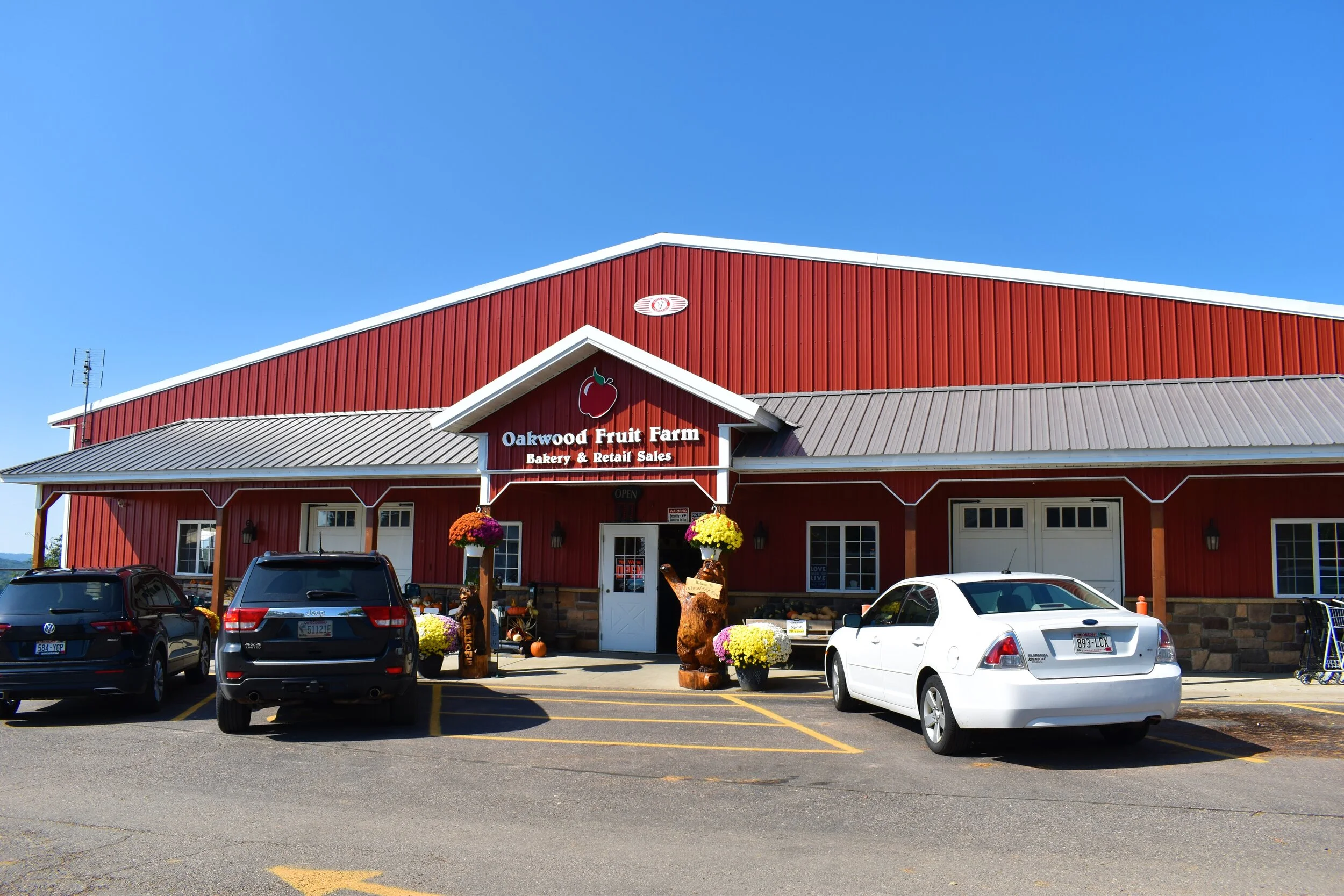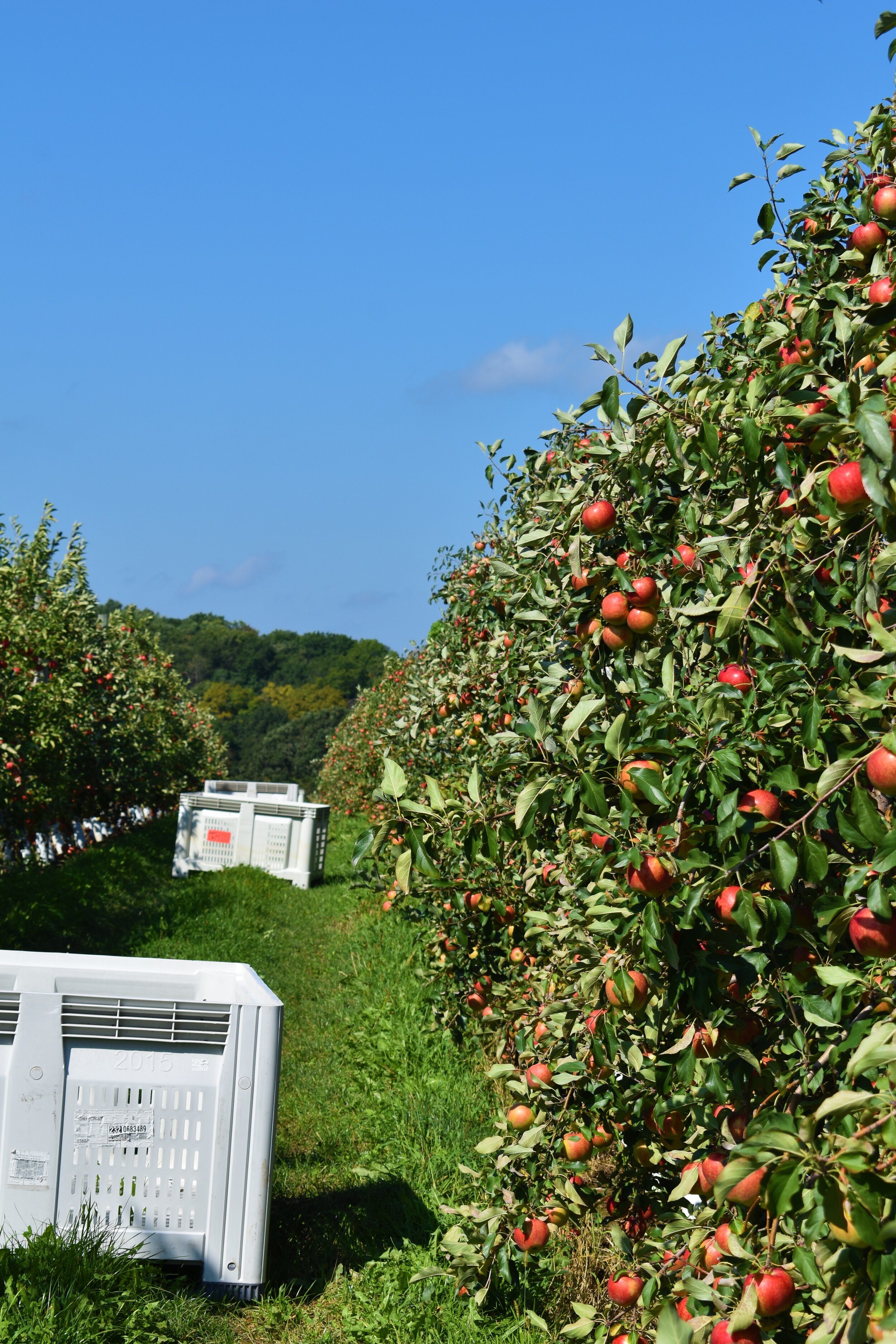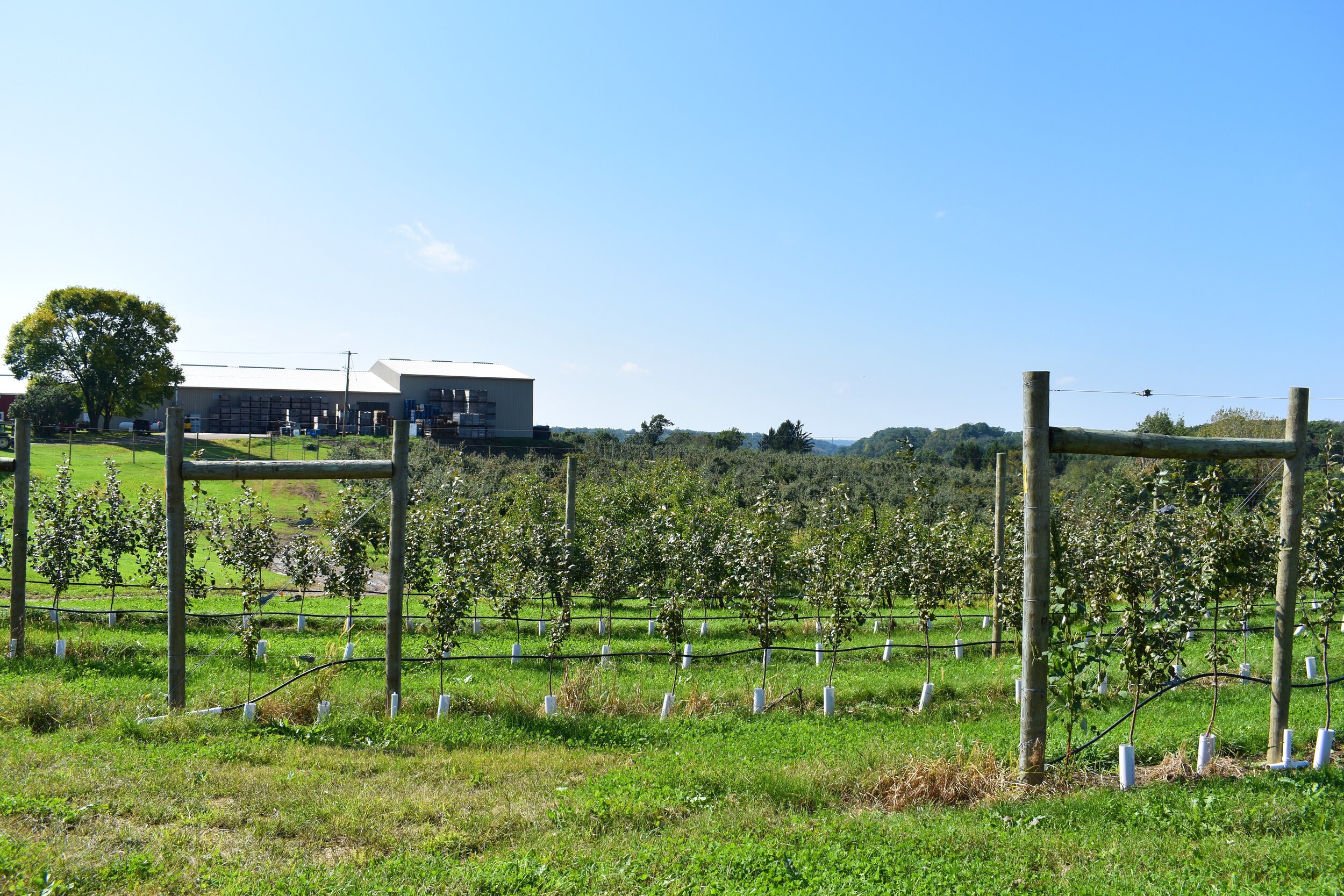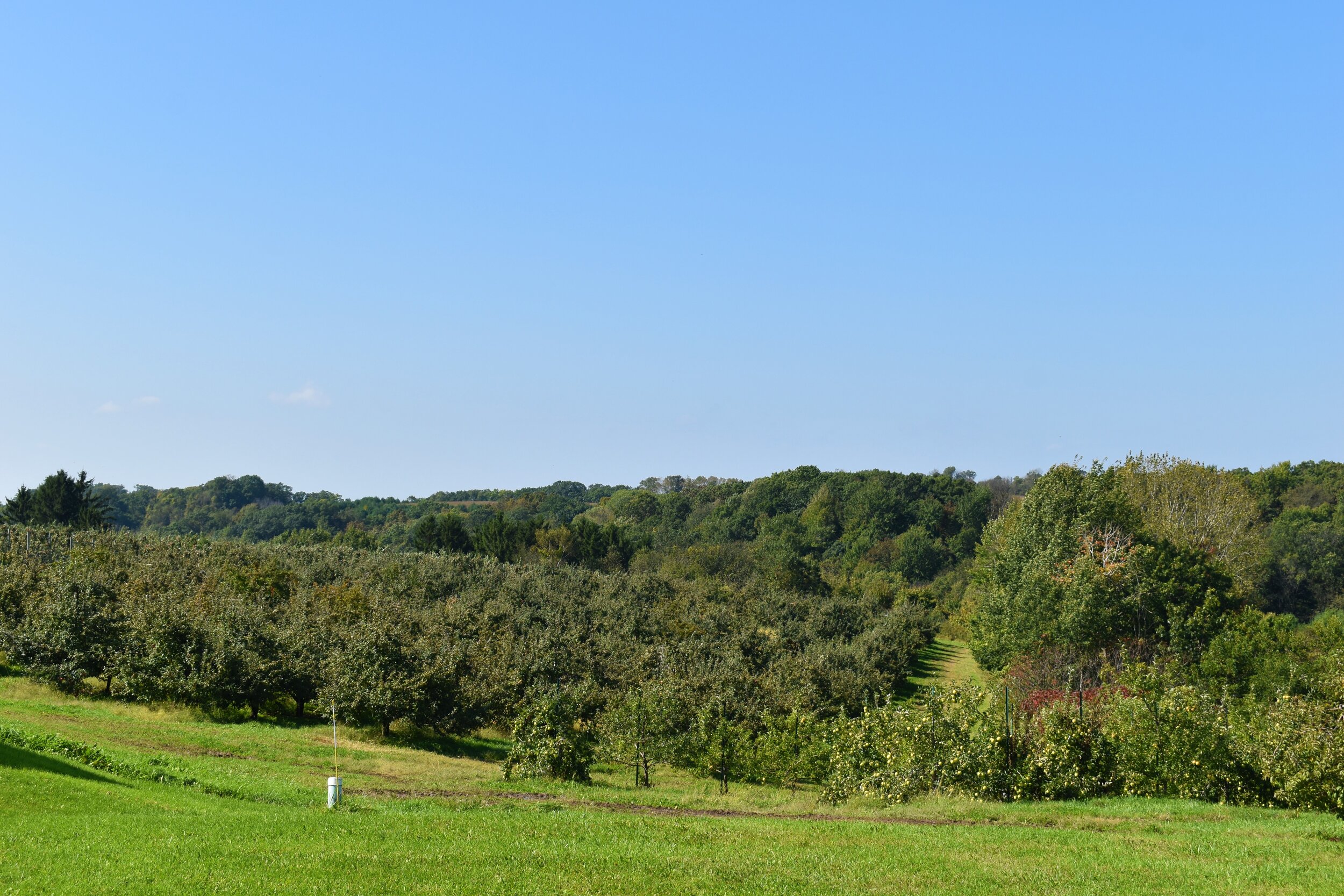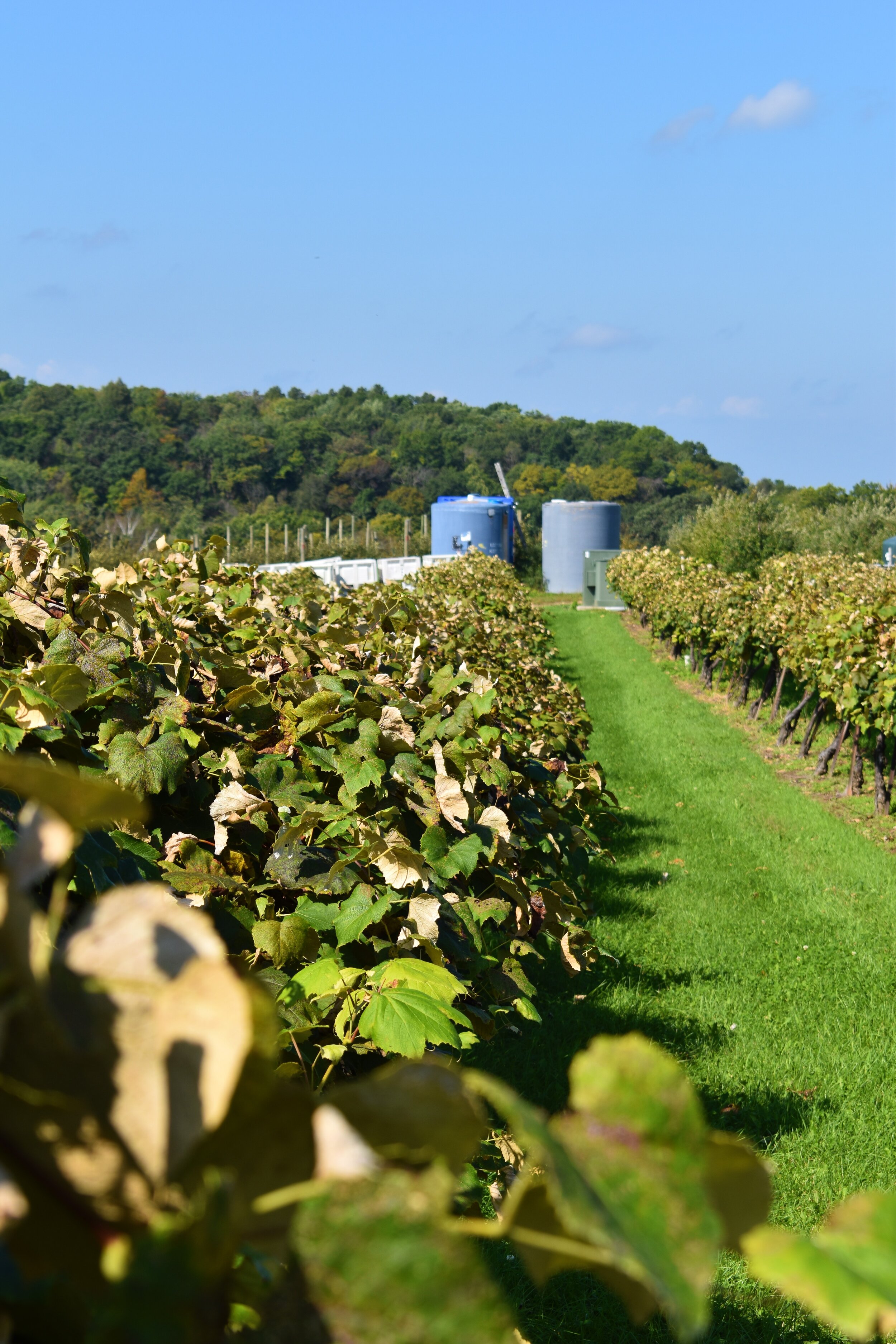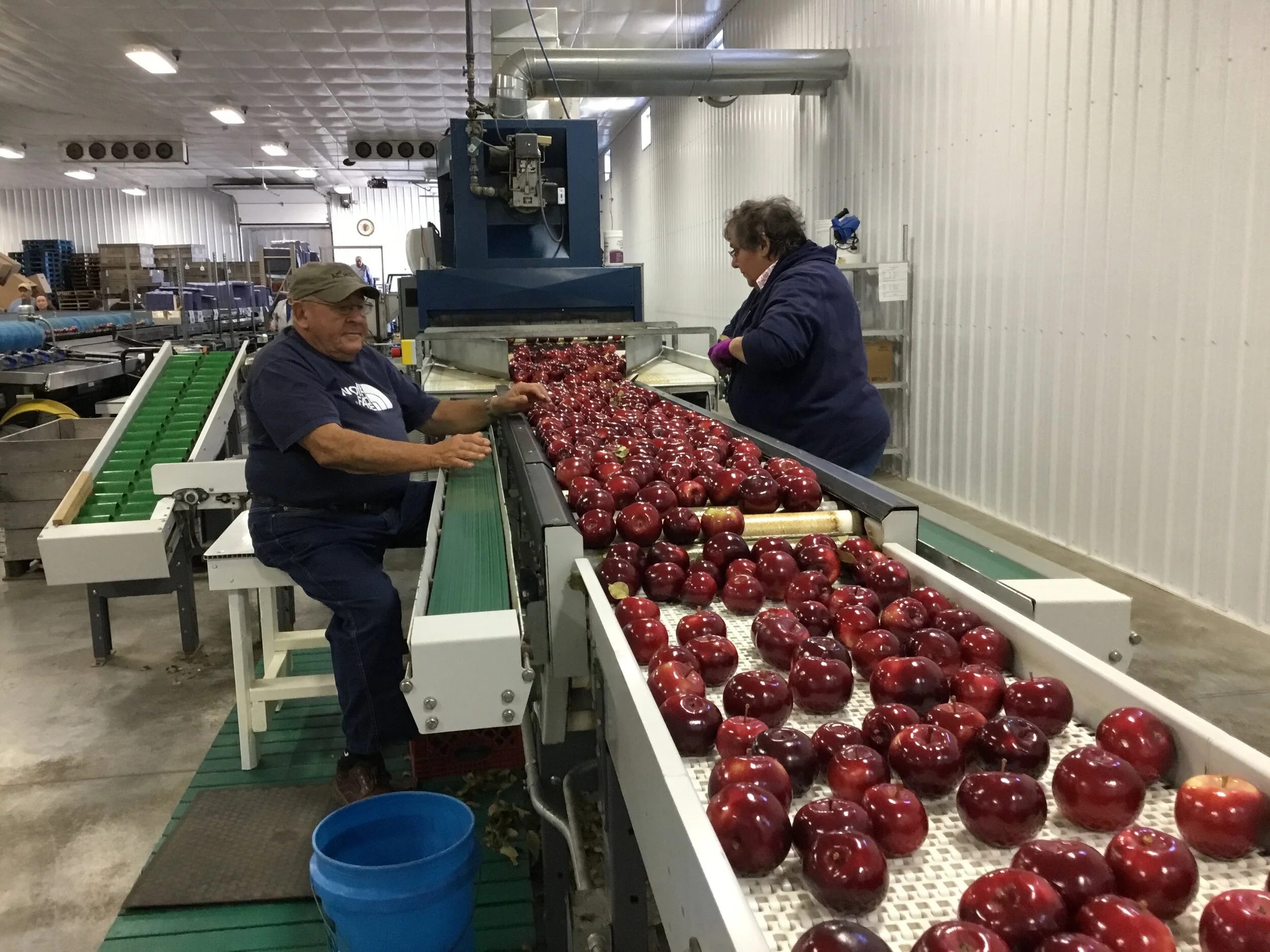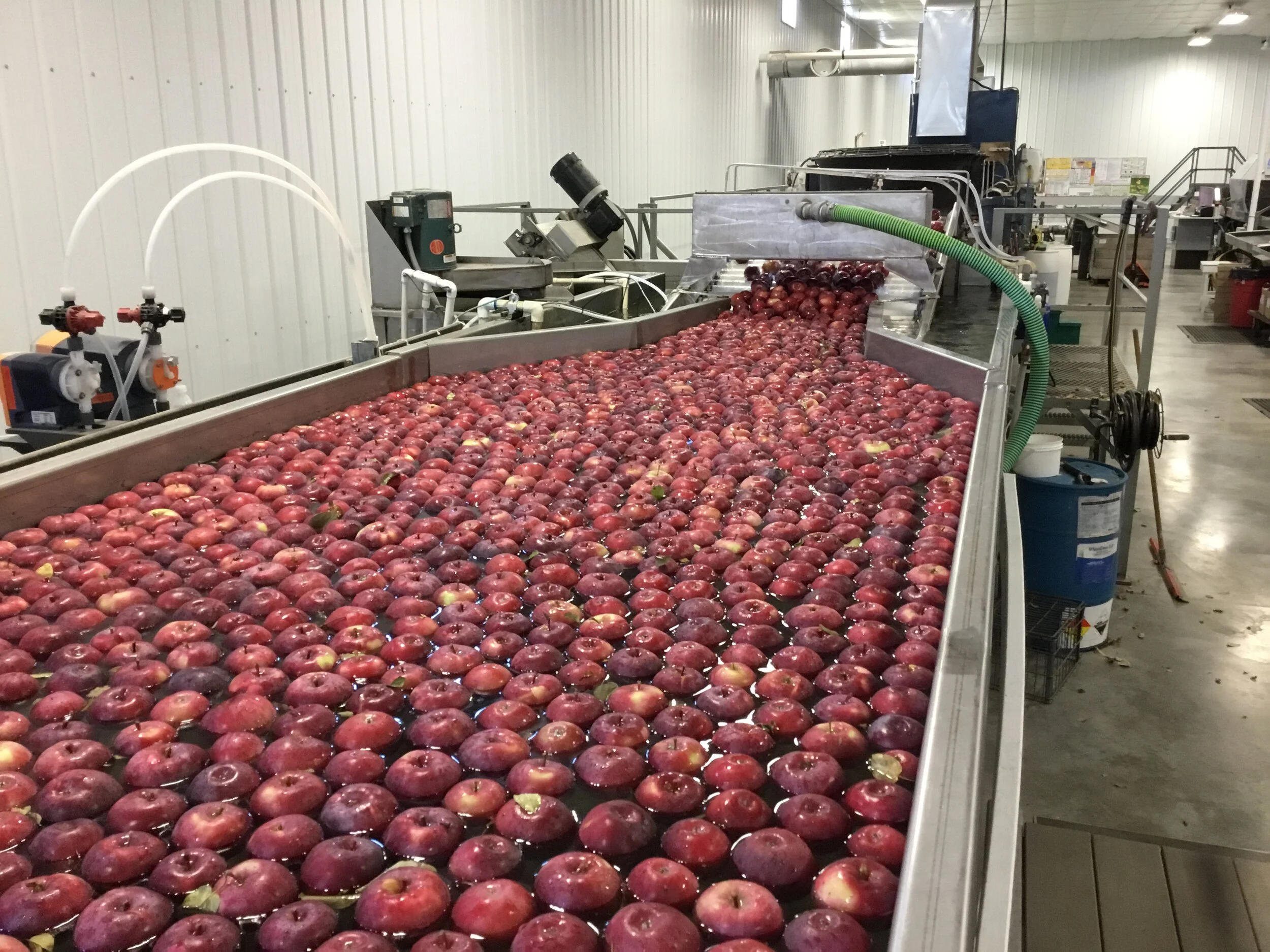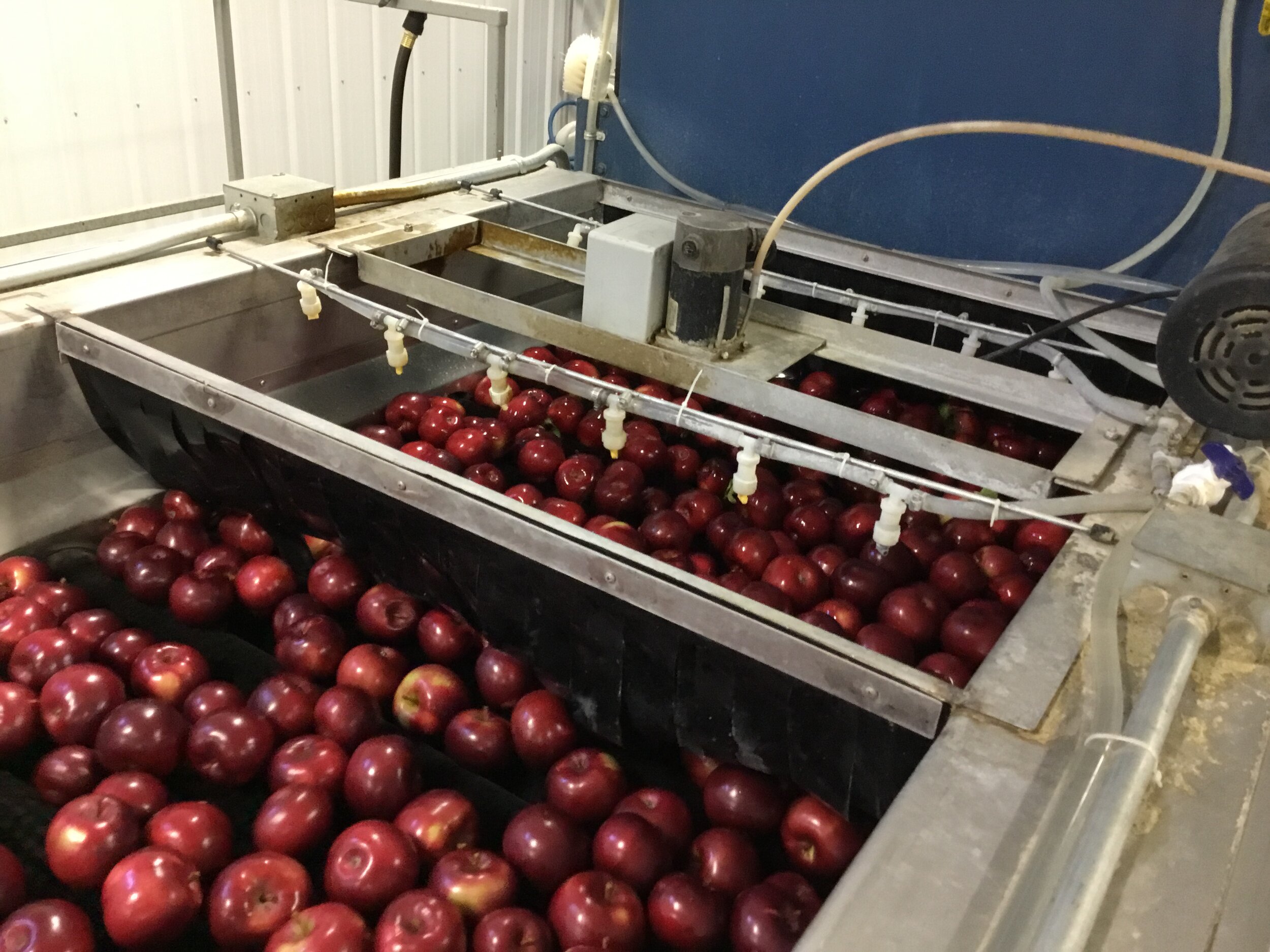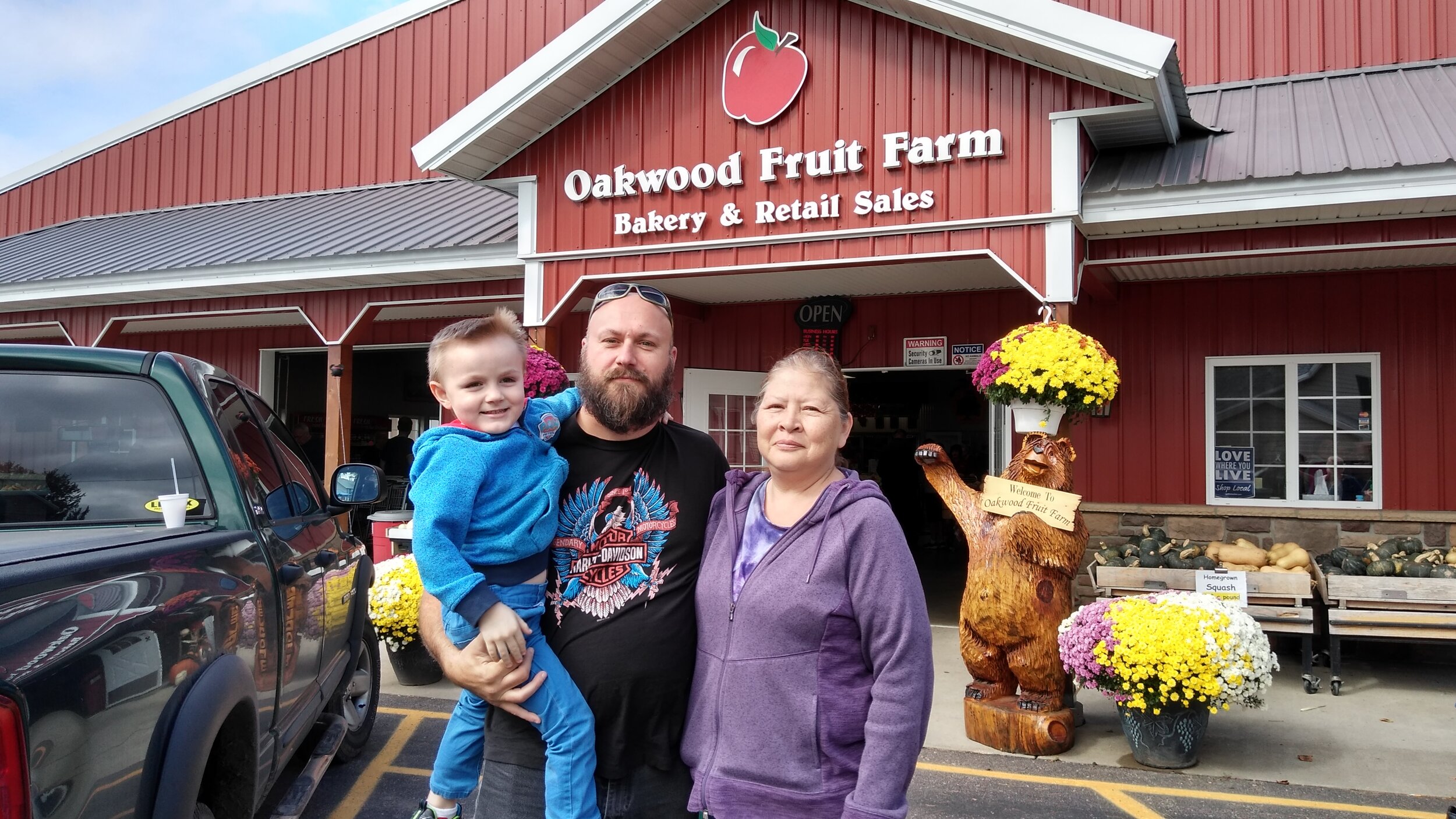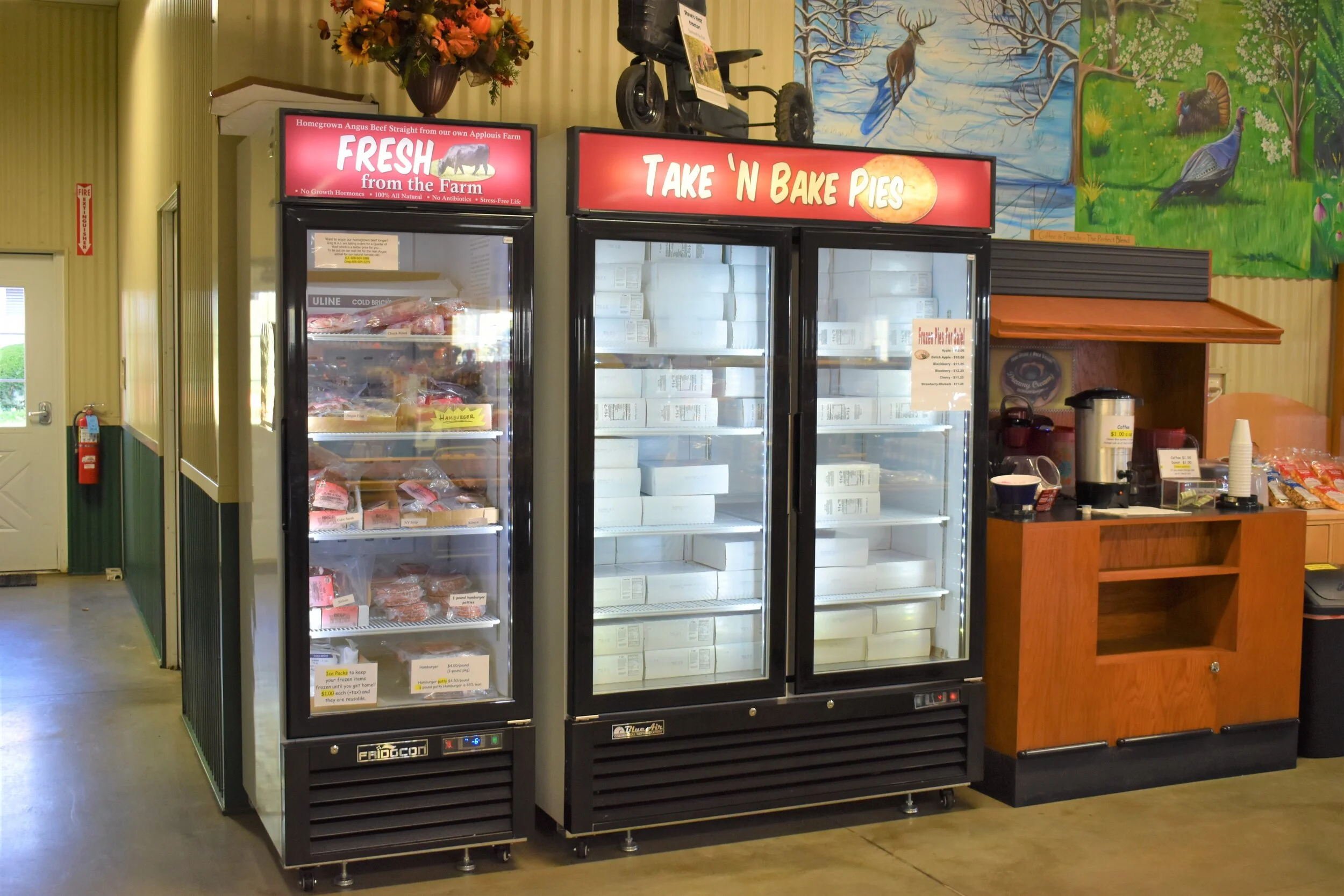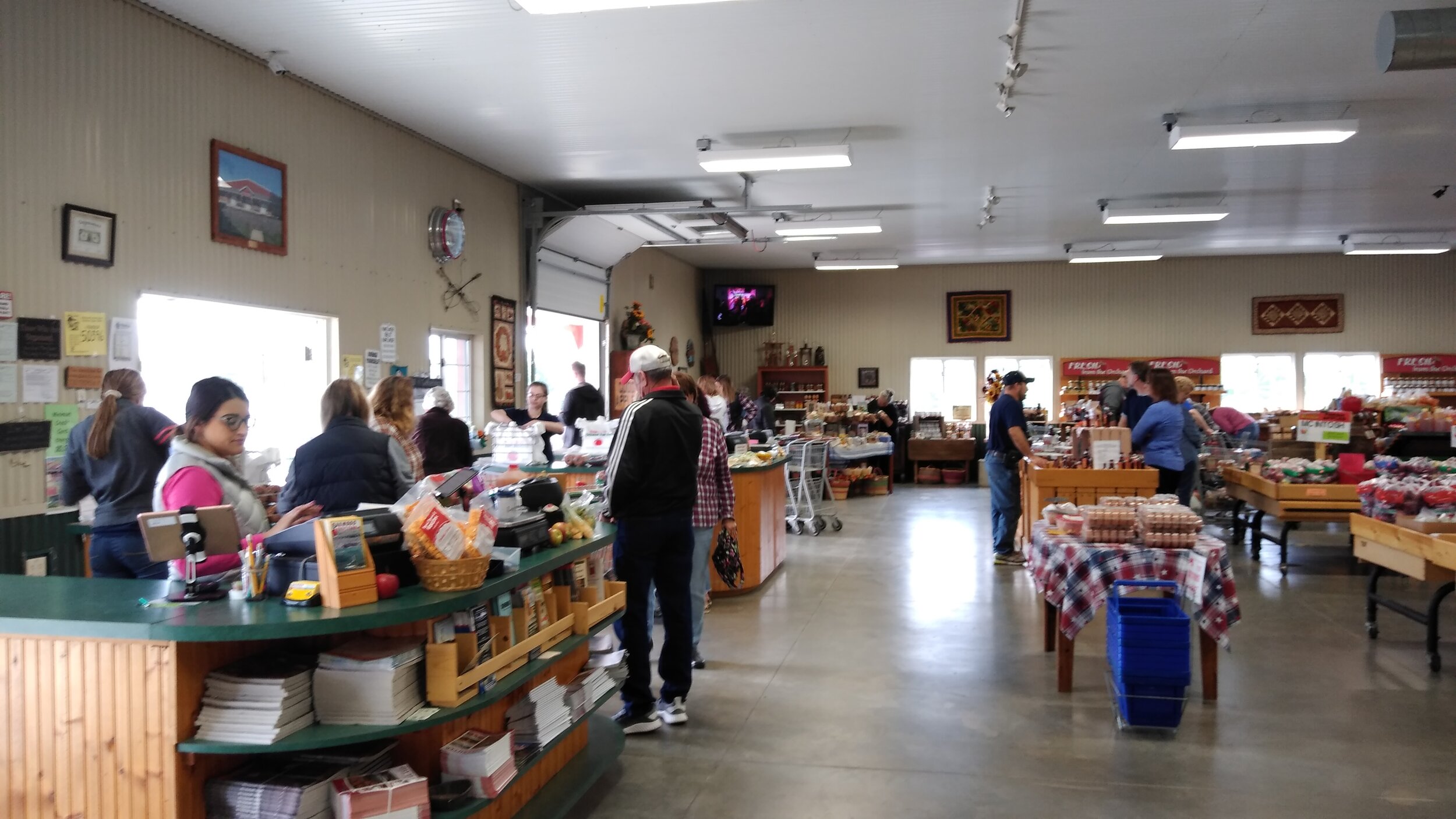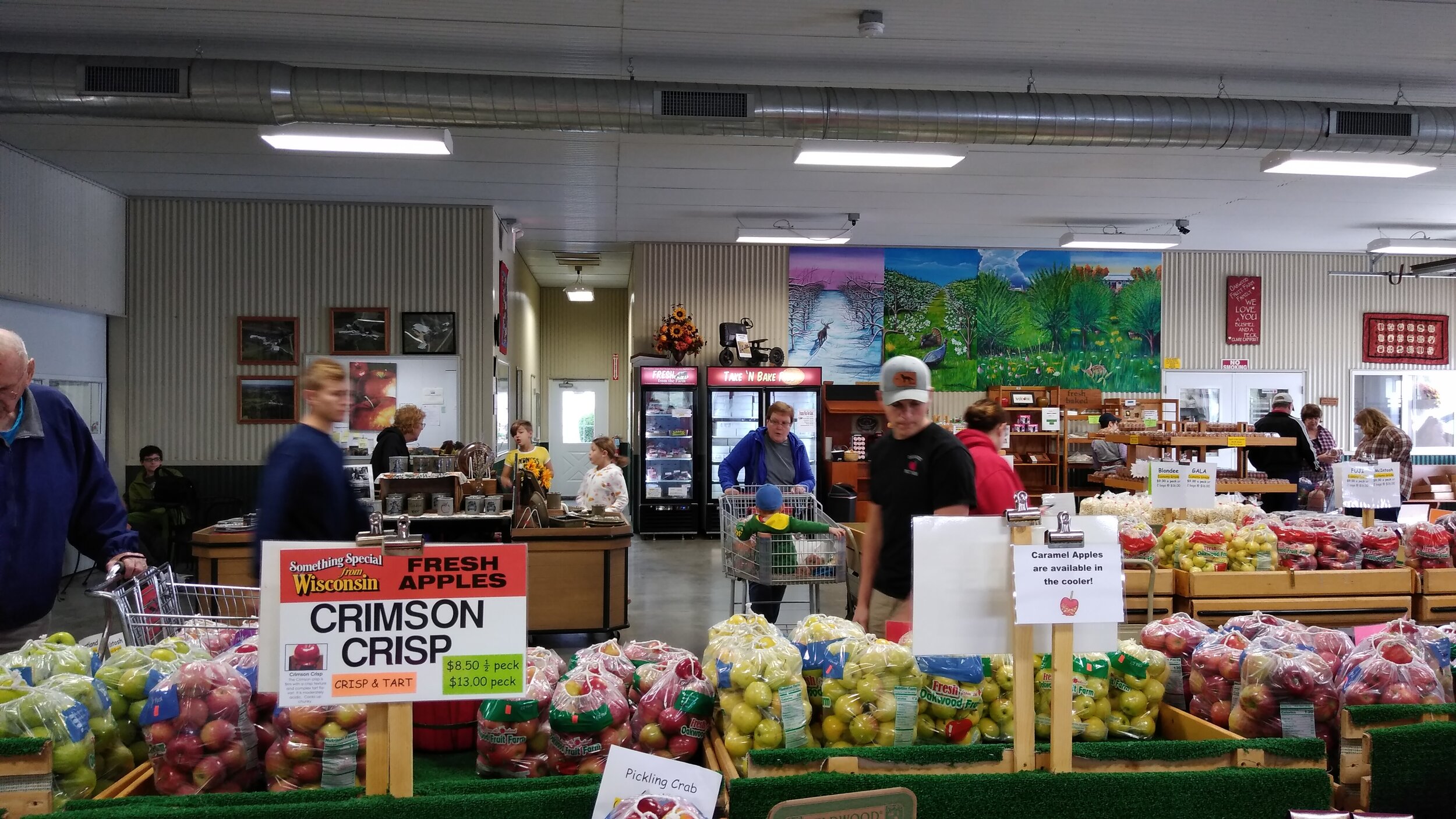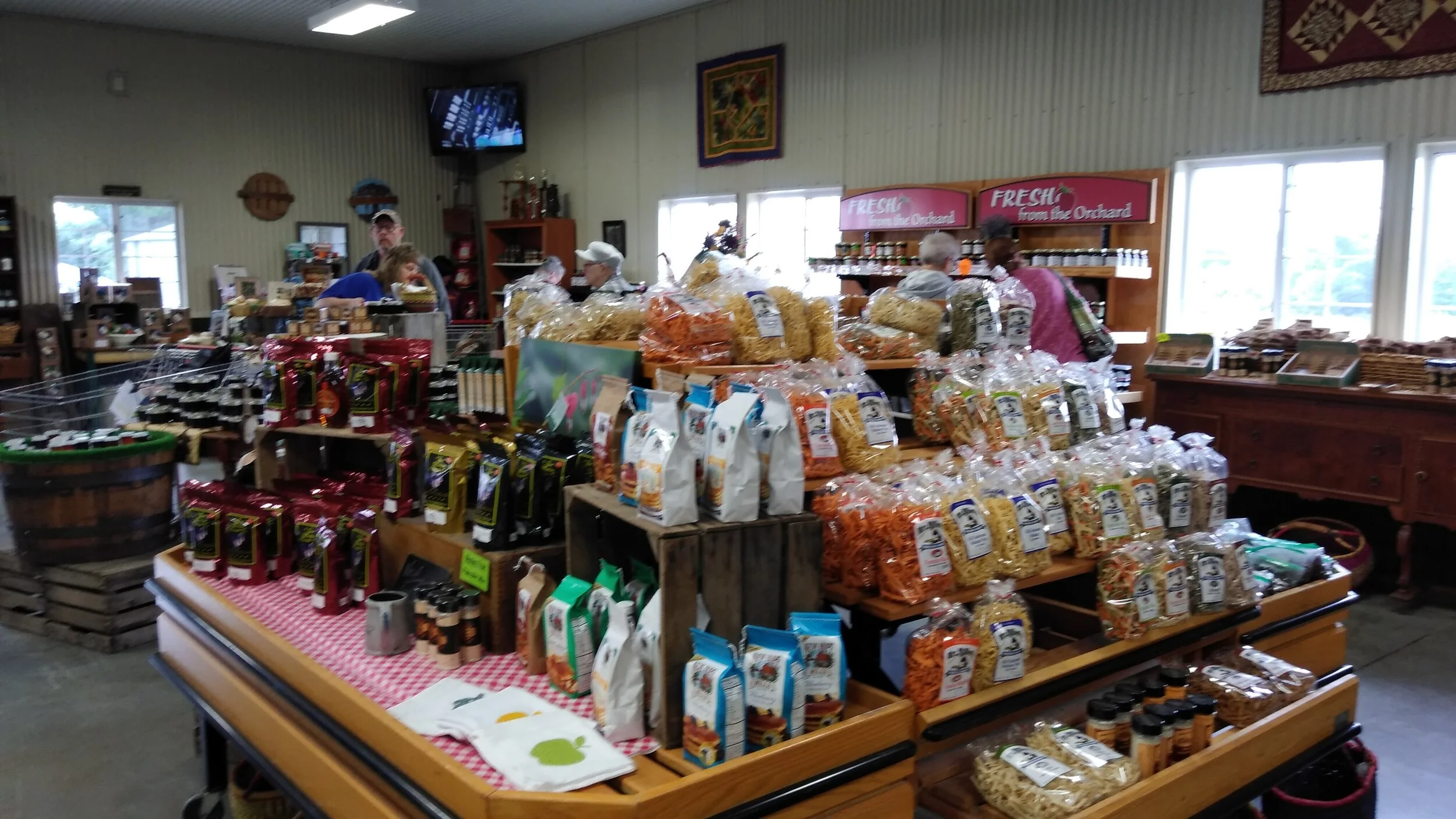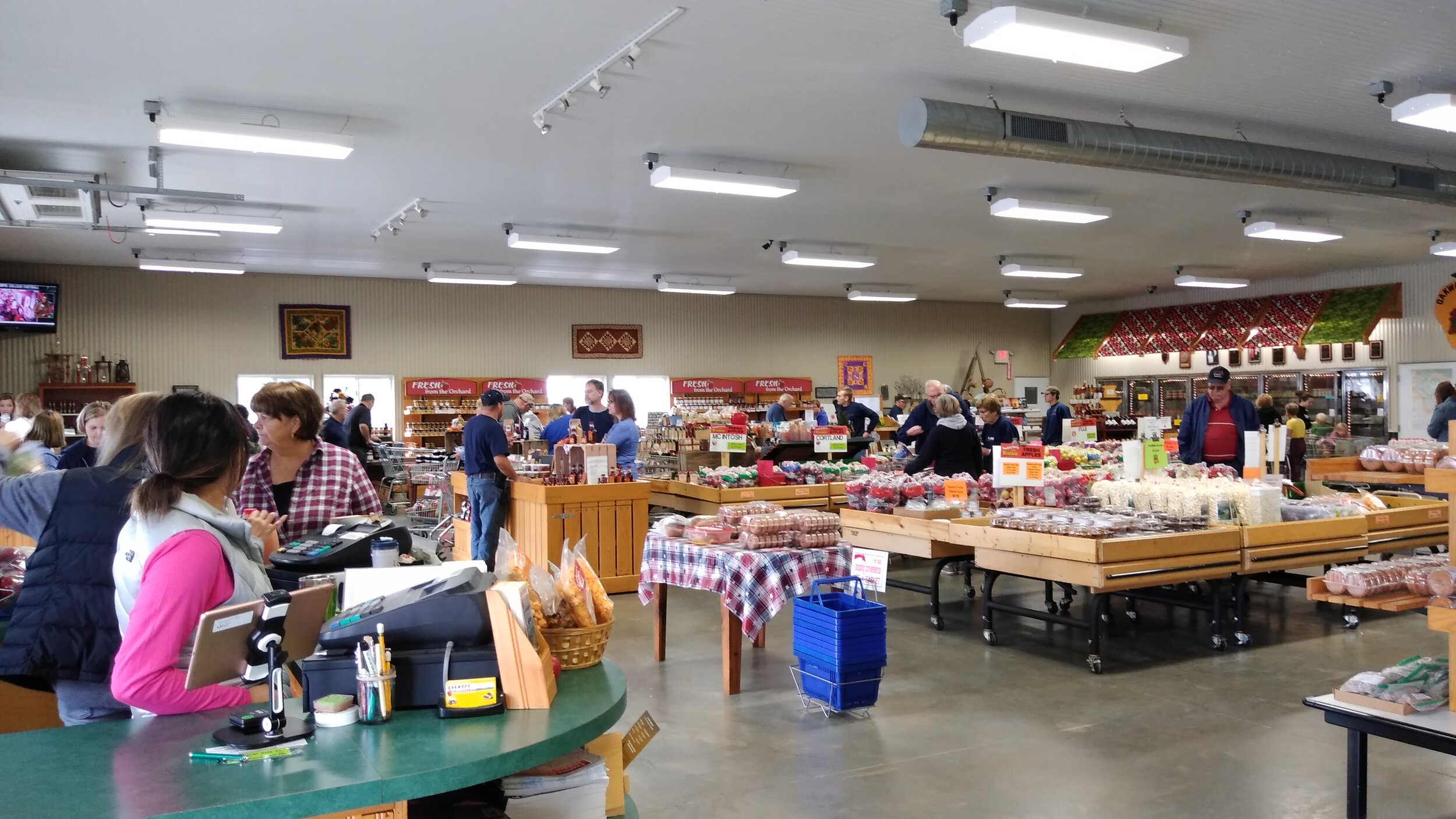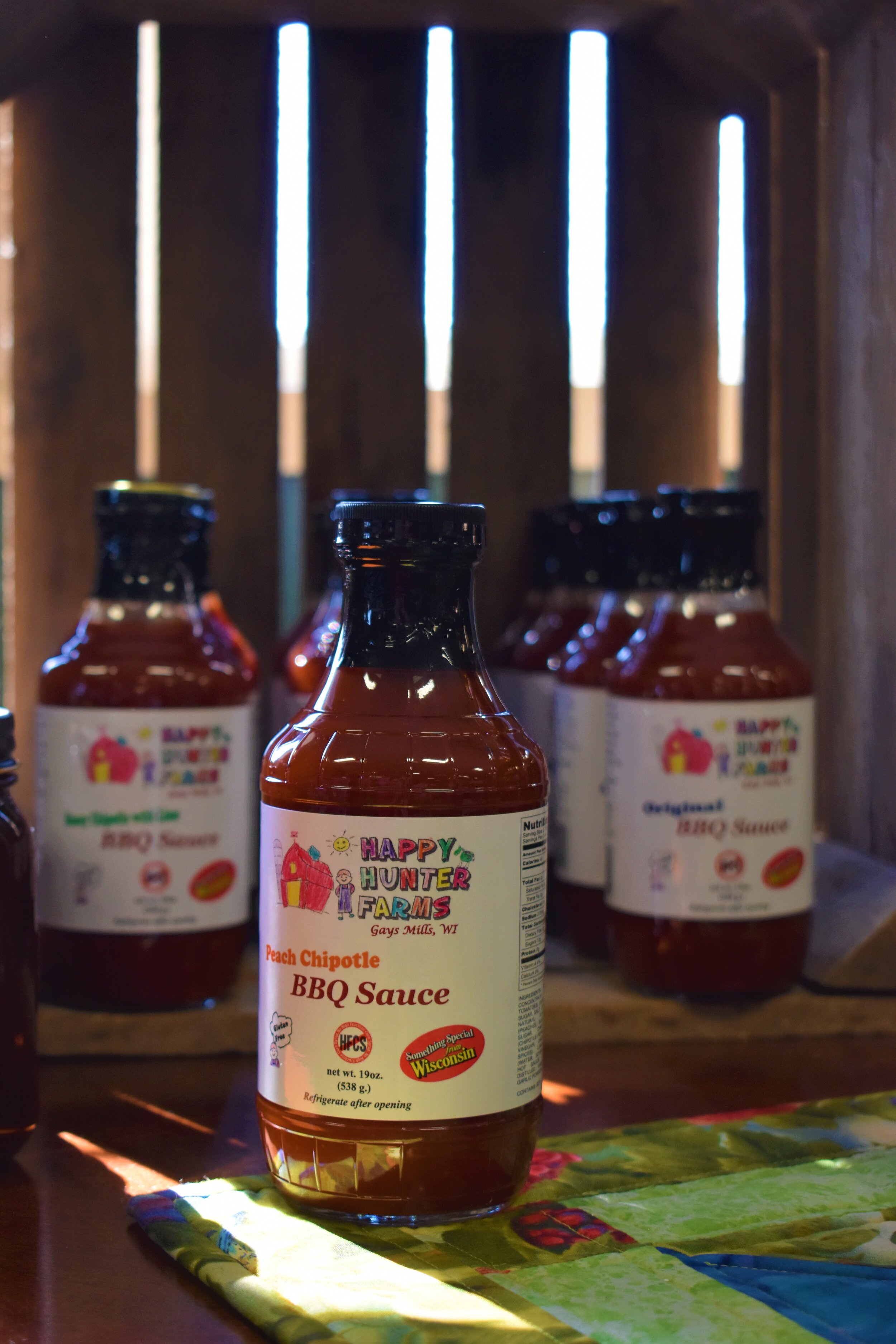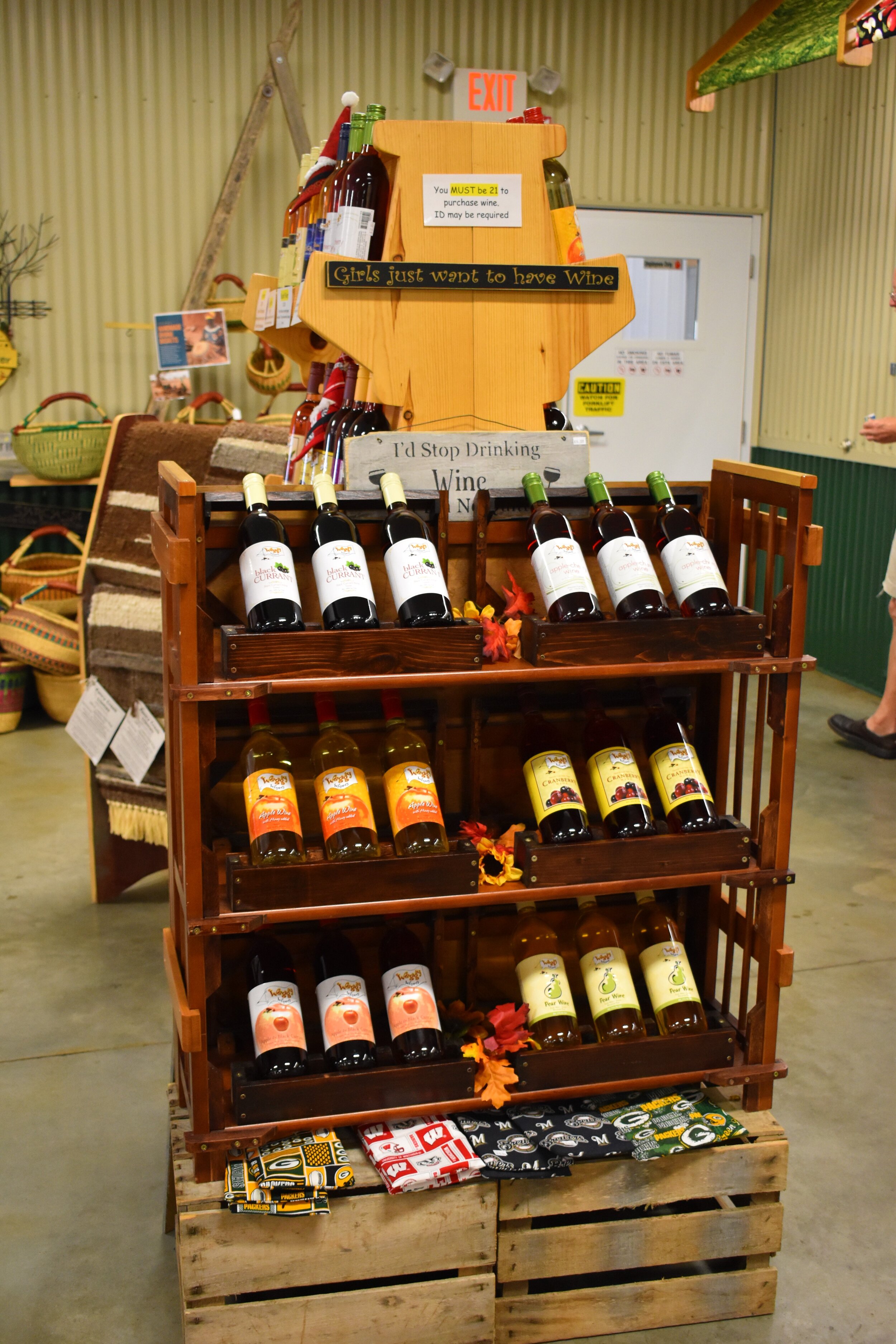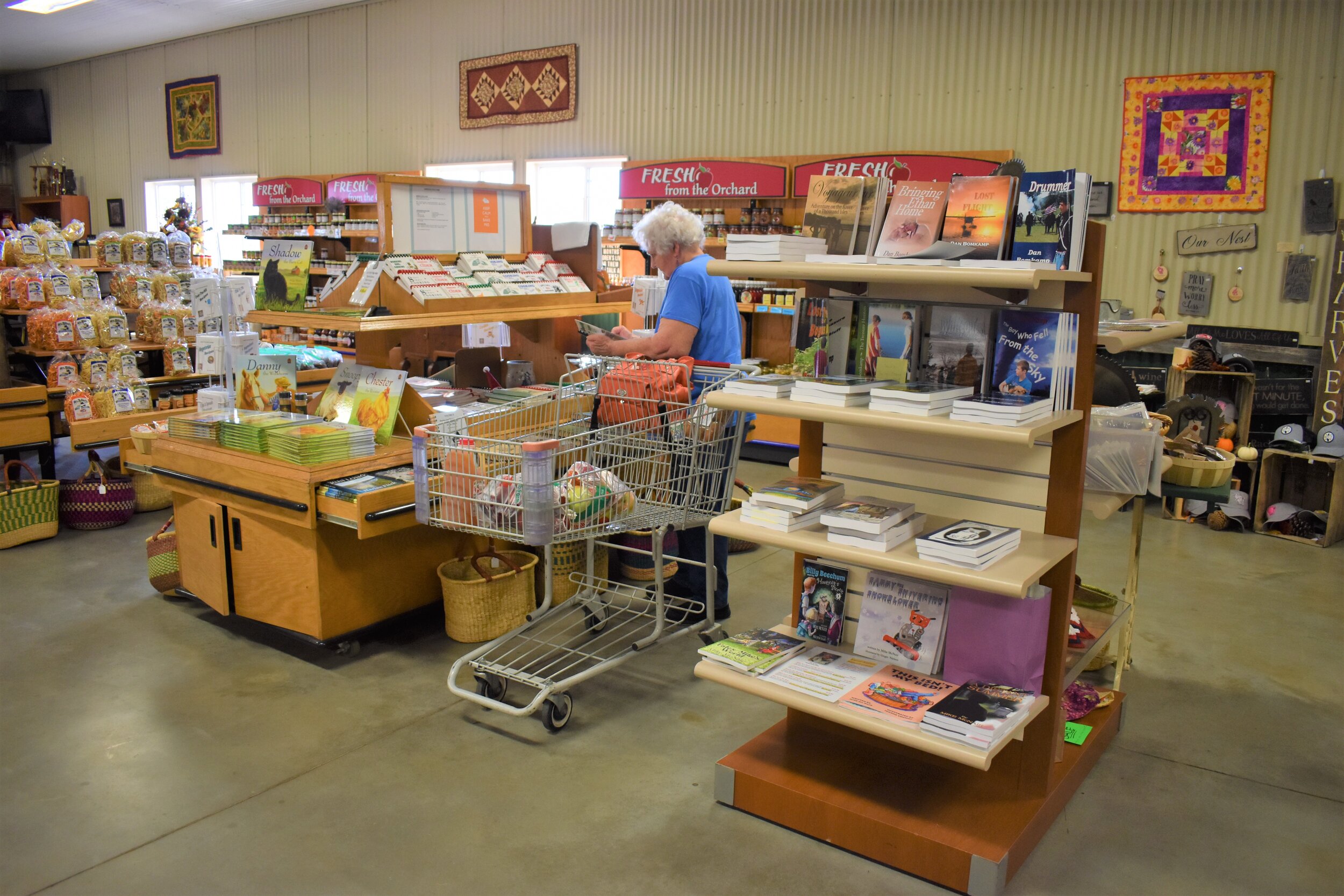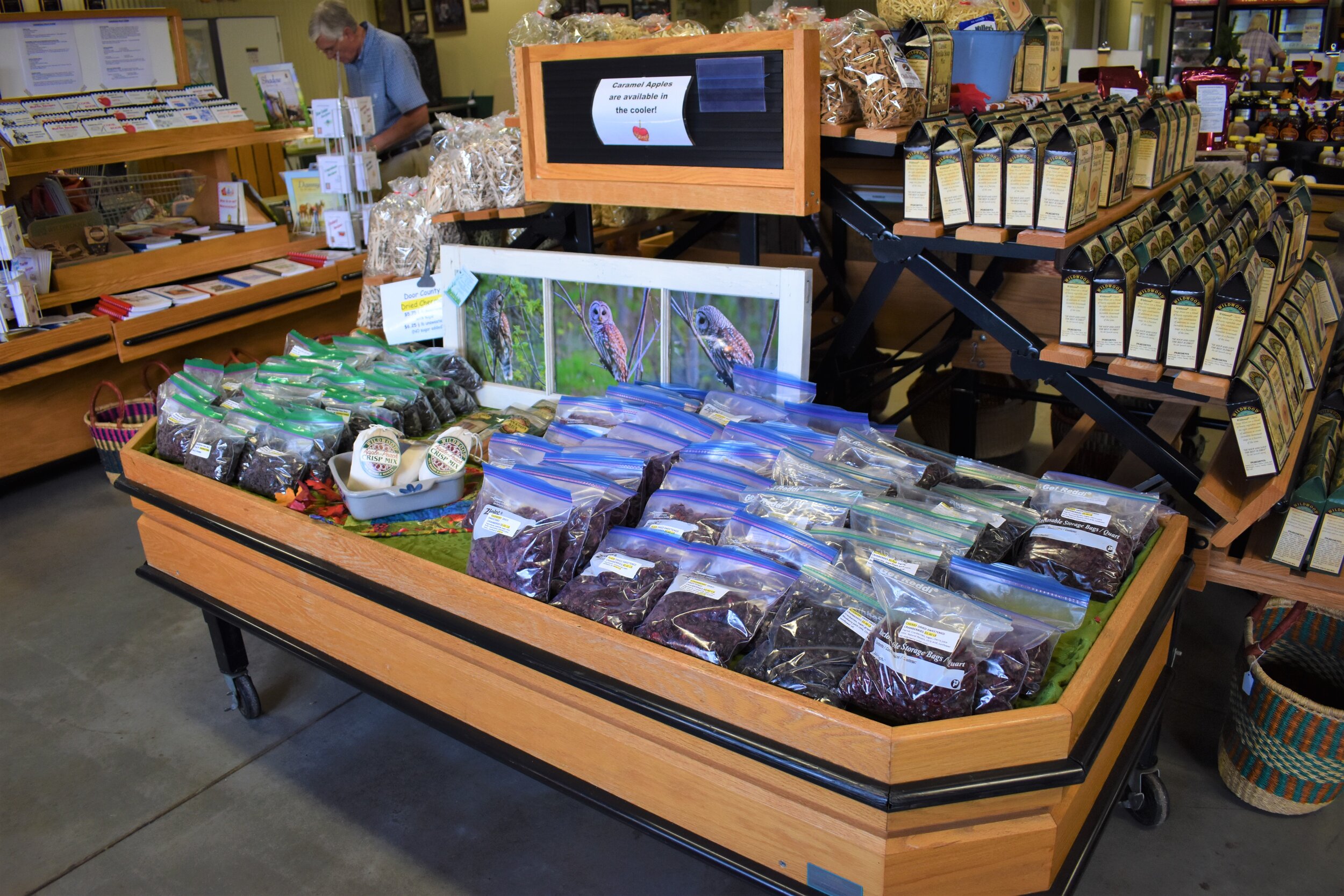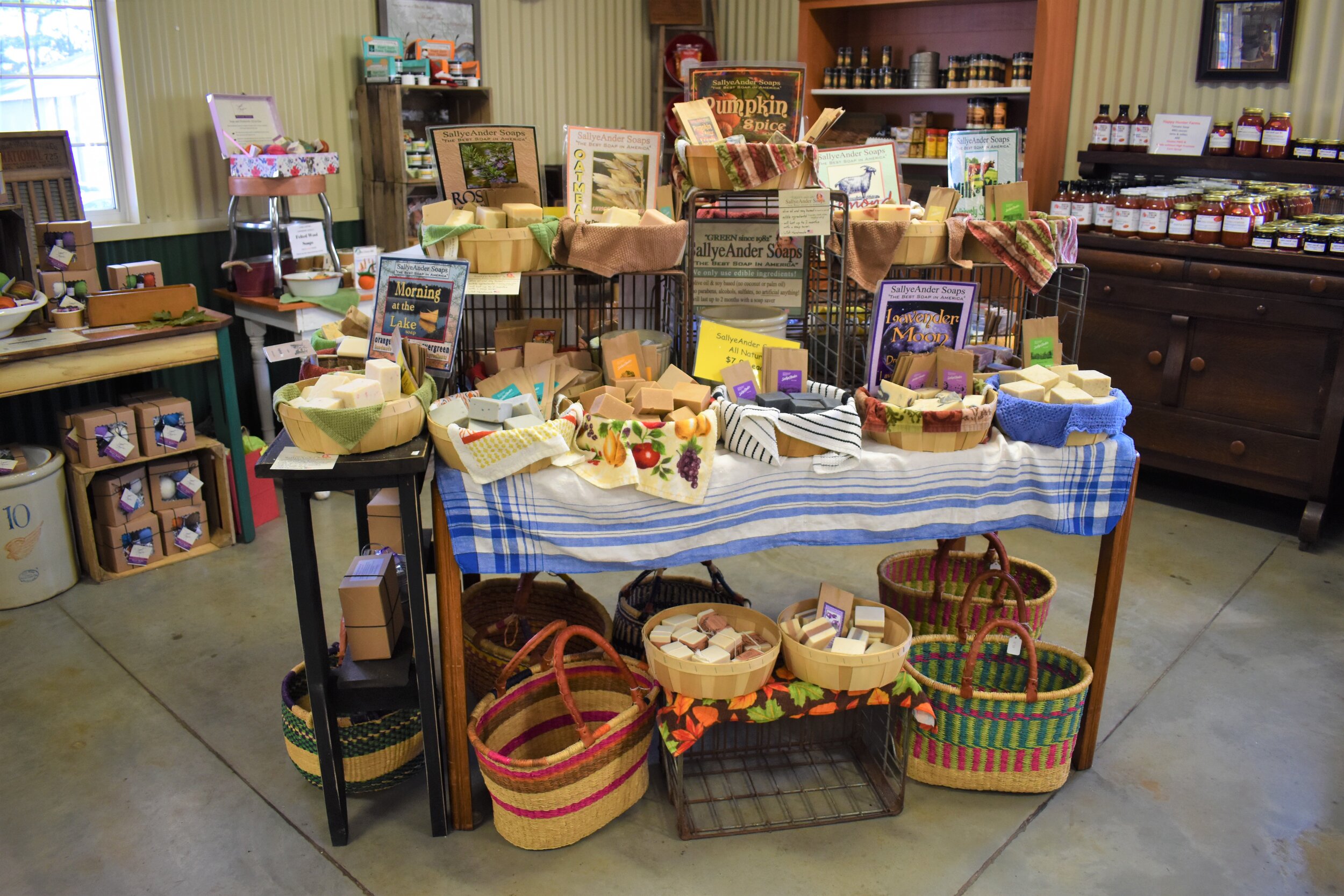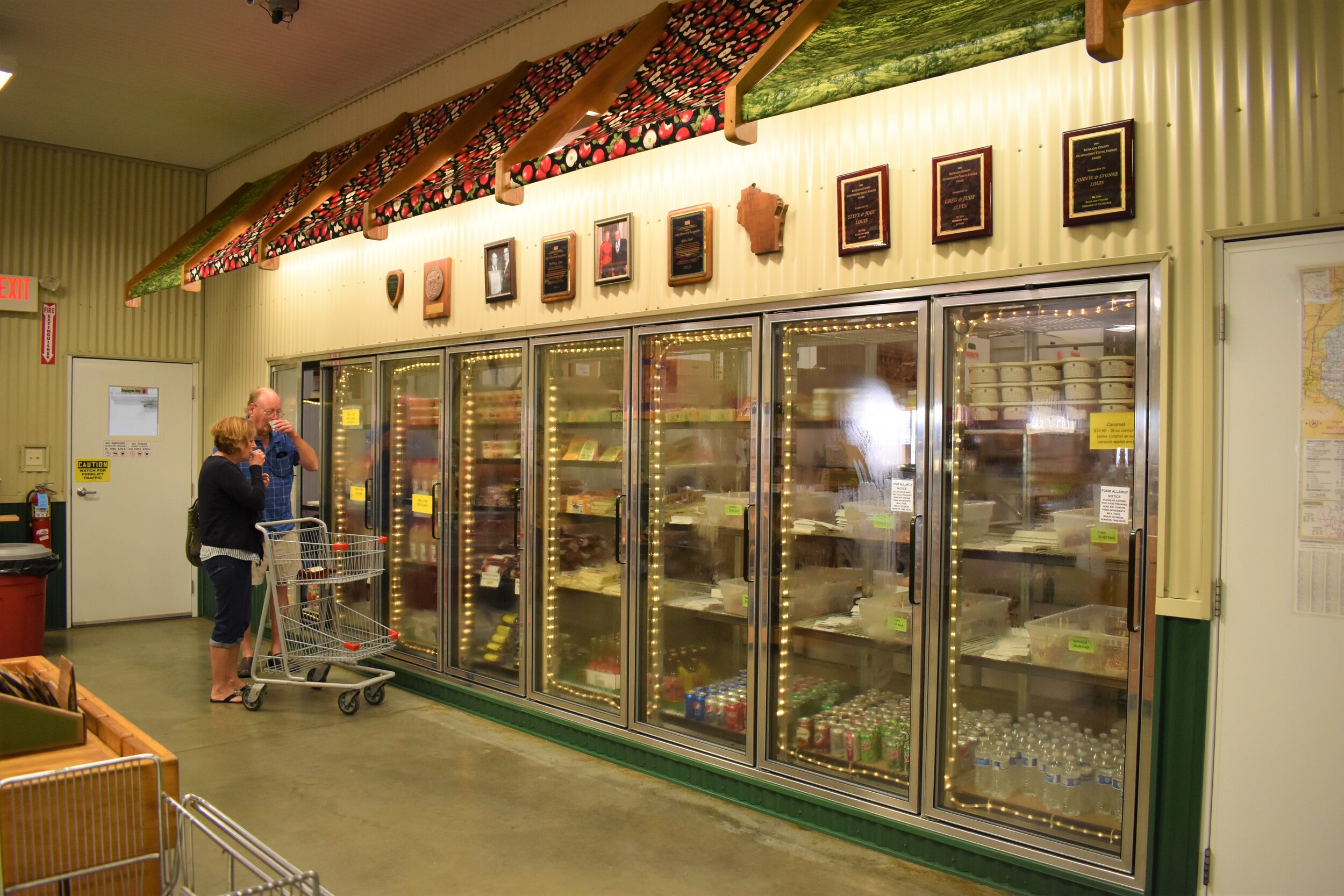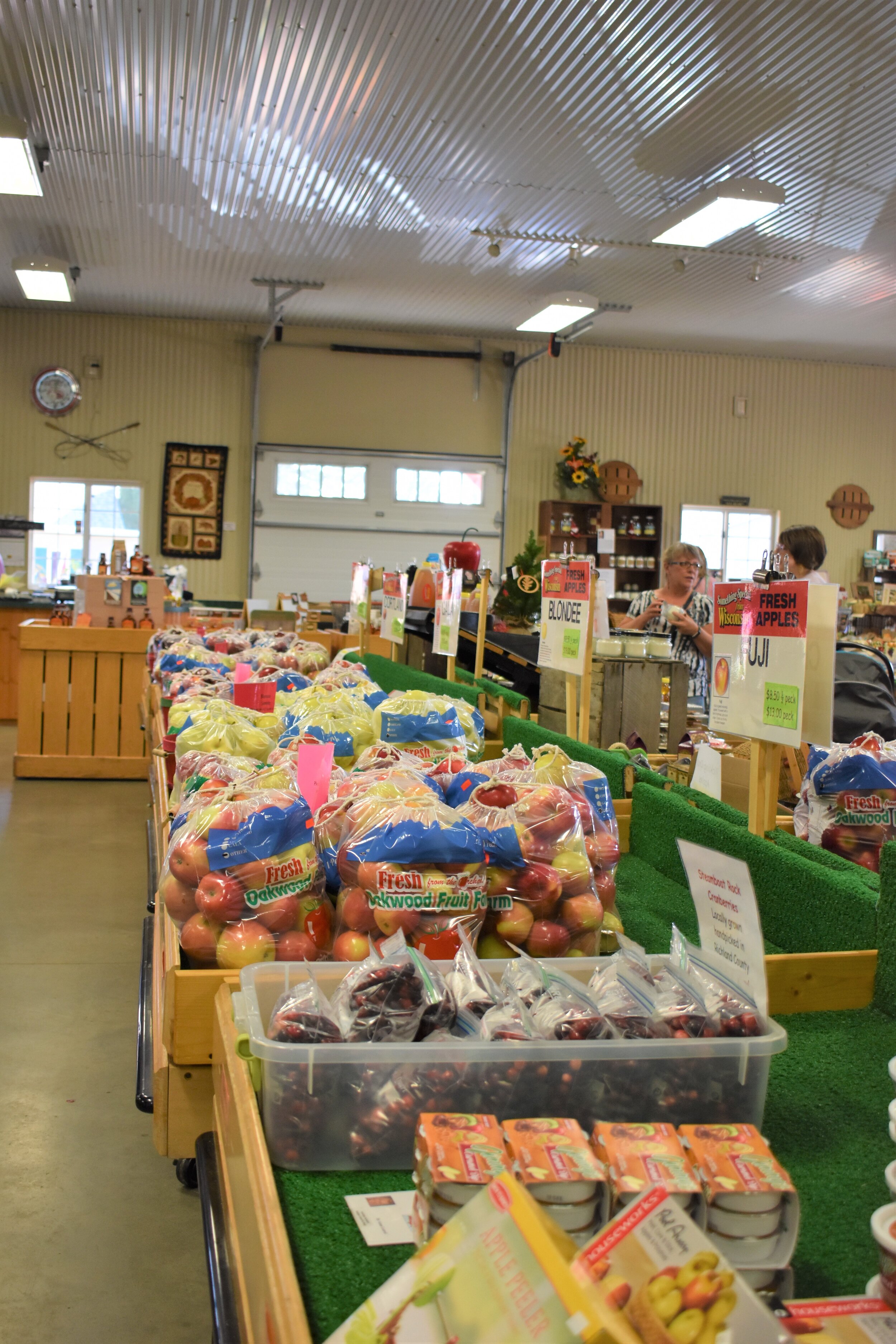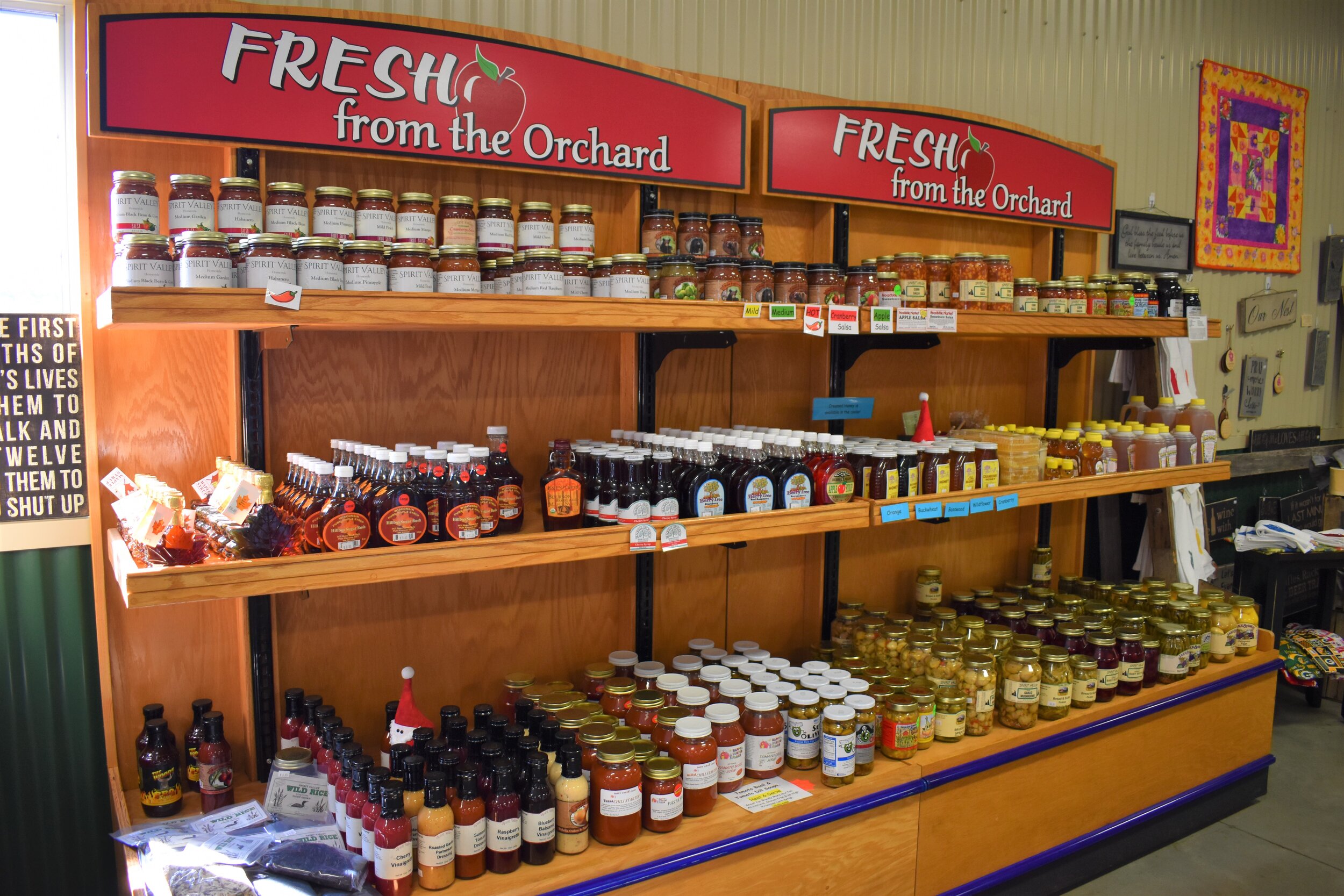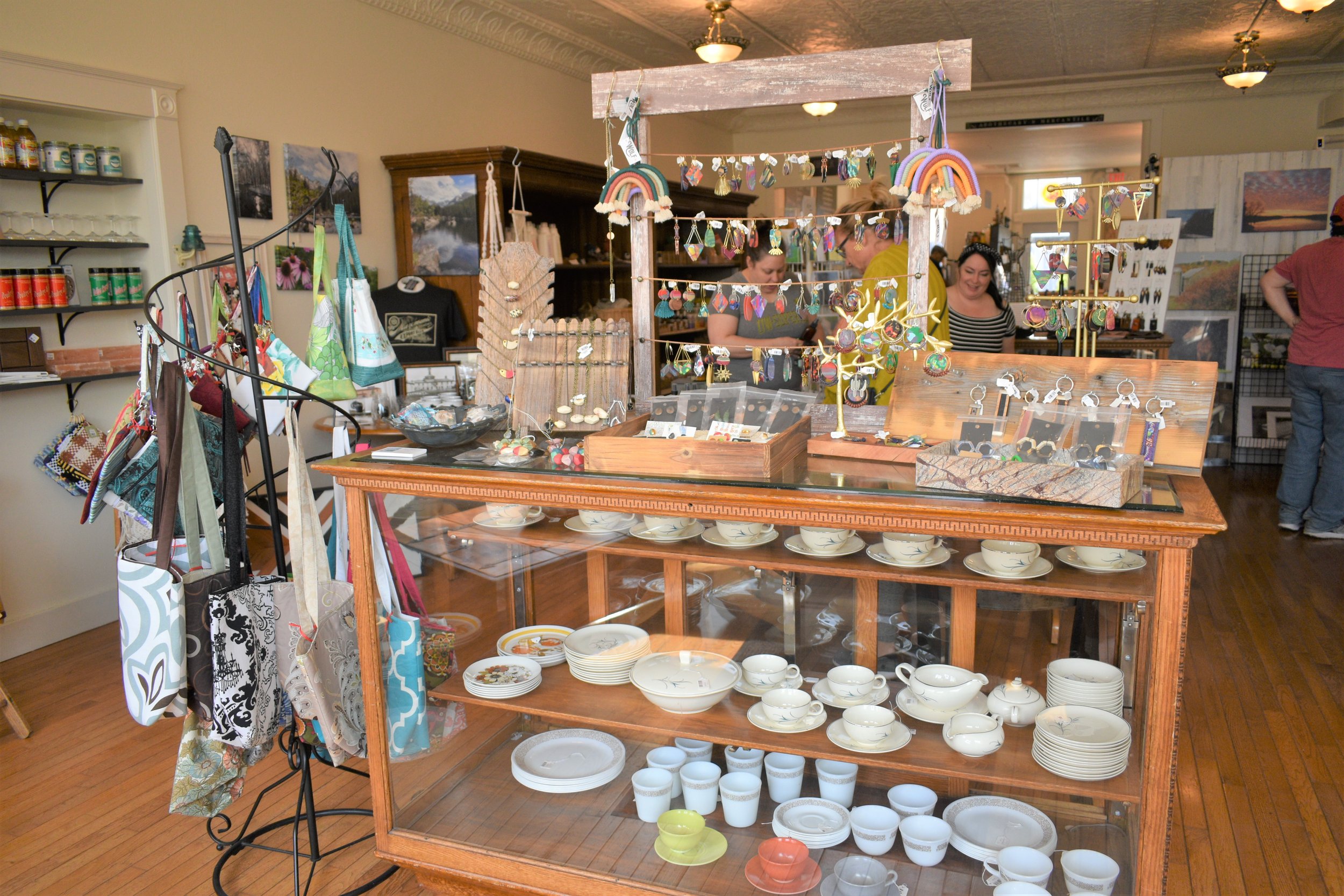Oakwood Fruit Farm celebrates 115 years
Started in 1904 by Albert Louis in Richland Center, Wisconsin, Louis started the farm more as a nursery selling trees. Looking back to the early 1900’s, people were self-sufficient when it came to their food, where big gardens, and canning was the norm.
Louis and his family were no different, they canned a lot of their fruits and vegetables helping them get them through the winter months, until the next year’s crop.
In addition to trees, the Louis’ at that time, were growing large crops of strawberries, raspberries, cherries, and eventually apples.
In the mid 30’s, Albert’s son Bill Louis, who was a teacher, quit teaching to help out his father on the farm when his brother Carl who was in business with their father, caught pneumonia and passed away. “That was how my grandpa got involved in the orchard. When he joined in the partnership with his father Albert, he’s the one who actually started planting the trees to produce the apples to sell,” Judy Louis-Alvin Said.
Carrying on a fourth-generation legacy at the Oakwood Fruit Farm, Judy and her husband Greg Alvin came into the business in 1979, and were joined by her brother Steve and his wife Jody in 1992 after Steve graduated from UW-Madison with a degree in horticulture.
With Albert setting up the farms retail and wholesaling in the ‘30’s, he would bring apples down to Twin Bluffs, Wisconsin, where they were sent by railcar to markets in Milwaukee and Chicago.
“We had those accounts for a long time, even when I can vaguely remember, we were still sending apples down to Milwaukee and Chicago,” Judy recalled.
As transportation got better in the 50’s, Oakwood had their own truck for hauling instead of taking them by railcar.
Judy and Steve’s father John Louis became partners with his father Bill after graduating High School in 1955.
During the 50’s and 60’s business was good, with 1/3 retail, and 2/3 wholesale making up their apple distribution.
Eventually the family started planting smaller dwarf size apple trees rather than the big standard trees. “You can still see some of the bigger trees while driving between the orchards to the retail store today,” said Judy.
She noted, the last plantings the family made are planted on a trellis system that has developed within the last 10-12 years. “When they are planted on the trellis, the trees are planted 3-feet apart and the row’s width are 12-feet. 12 feet is about the size of those small orchard tractors now that will fit down the row of trees. That’s how the size of the width was developed because of the tractors and sprayers that will fit down between the plantings.”
The trellis system, is a two-dimensional high-density apple training system, often referred to as a “fruiting wall,”.
With the orchard spread out over 180 acres, there are about 1,000 trees per acre.
With Oakwood Fruit Farm’s retail having evolved and grown much bigger over the years, Judy said that she was not sure if some of their patrons knew that on October 10, 2010, that the business suffered a devastating fire.
“Our complete building burned down. We had just finished harvesting about 3 days before that fire, so a big portion of our crop would have been sold. We had about 30,000 bushels of apples stored in our cooler. We lost everything,” she said.
The fire had started in a compressor area in the oldest part of the building, which was at the time, over 100 years old. Judy noted that the original building was a hip-roof barn.
“That took us out of business in 2010. We knew by 2011 all of those apple trees would have apples on them again, so we needed to prepare fairly quickly to be ready by the fall of 2011.”
By December of 2010, footings were dug and the new building was started. Not to be deterred by the incredible loss, the family visited other orchards in Wisconsin and on the east coast. They looked at what type of packing and retail set-ups other orchards were working with, so that a plan could be made. Oakwood Fruit Farm’s facility today is the end result of that careful research and planning.
Judy acknowledged the devastation of the fire brought some positive press coverage, that led to the family reaching out to the public in the summer and fall of 2011.
With the family sending out the message, ‘Hey come on back, see what we’ve got now. We are open again,’ Judy said a lot of the public came back. “Customers who had visited us before, realized what a kind of diamond in the rough we were compared to some other facilities. Now, the customers have family or friends coming in, and it seems like they are always bringing people with them, so we are generating new customers that way too.”
On their customers Steve said, “The crowd is always nice. If we get good, sunny weather, we get a better crowd, so we always hope for nice weekends this time of year. People come out and see the colors and come out to enjoy the orchard.”
Traveling from Green Bay, Wisconsin, Jamey, Michelle, and Bentley Ambrosius, stopped to visit the orchards. Bentley wanted to go on the train thing, so we are doing this first, and then heading over to the Mid-Continental train ride. It came across on one of my Facebook feeds ‘Only in Wisconsin’. I thought we would check it out, what the heck. We did something like this in Indiana, we were down visiting Michelle’s cousin in Chicago and they had something like this. We ended up shooting to Indiana from Chicago and did a day like this too.
“It’s nice to find something to do out away from the city. It’s good for the boy (Bentley) here, he likes being outside looking at stuff,” Michelle said with Bentley chiming in saying, “I like doing everything out here. Getting pumpkins, and I get to make pumpkin pie and make pumpkin baskets,” he said jumping up and down.
“It’s pretty nice, and it’s nice to have something like this around, and they have a good selection,” Jamey said.
Judy stressed that Oakwood Fruit Farm is advertising on TV towards the Madison area, and said that Oakwood is not a drive-by, but rather a destination. She acknowledged it takes a lot of work for people to locate us, and realizes that Facebook and Instagram are great tools to try and get the younger generation interested in their products and out to visit the business.
“We’ve expanded our store. We like to feel that we focus a lot on Wisconsin-grown products here. We try to buy the local maple syrups, jams, sorghum, honey, and encourage small vendors looking for an outlet for their stuff local to the area.”
Oakwood has added some new things, and it seems people are noticing that they really do deal with a lot of Wisconsin-made products. “If you are looking for a gift, sometimes you want to get something local from the area, and not be buying something from China. That’s what we are priding ourselves in.” Judy said.
Judy’s brother Steve added, “We try and do Wisconsin or Midwest products, and get them as local as we can. We do have some products from throughout the Midwest, kind of some specialty things. We try and have that small business, hometown kind of flavor.”
But keeping it local with their products is not the only way they try to help area businesses. Oakwood Fruit Farm’s economic impact is also felt locally through employment. “We employ as many local people as we can. We have quite a few year-round employees. This time of year, especially the weekends, we employ a lot of local students. For a lot of people, it’s a first-time job here or a first-time job anywhere. So, it’s kind of nice to get these kids and give them a taste of a first job and get them going where they can start part-time a few days a week on their schedule,” Steve said.
One of the highlights at Oakwood, is their bakery that replaced the old one destroyed in the fire. Opened in the fall of 2010, the new bakery turned out about six weeks of apple cider donuts and turnovers in its first run. Since, Judy said they have expanded what the bakery offers, including a nice variety of take-n-bake pies, and of course their popular Apple Cider donuts.
Having a quizzical mind, I asked Judy, why choose Richland Center to grow apples? Her answer, well intriguing to say the least. “It’s the ridges. In the spring when we are in bloom, those cold pockets settle down in the valley. We can be as much as 5 to 10 degrees warmer than that. Those first frosts that would maybe happen around bloom time are also approaching here in the fall. The first frosts are usually in the valley where that cold settles and the heat rises. I think our flavor of apples here is exceptional. As my grandpa always said, ‘the good clay soil that we have here in Richland County gives the apples its own unique flavor as well.”
As for the effect if any last year’s harsh winter had on the orchards, Judy shared “We definitely had concerns because in January, we were having -20+ degrees and were very much worried about the fruit buds. At that point trees are dormant, but it is still awfully cold. We grow a lot of Macintosh and a lot of Cortland here. The reason we grow so many here is because of our winter weathers. Those varieties seem to withstand those cold temperatures the best, but they were still affected. In 2018, those two varieties were heavily cropped. Sometimes you can see that the next year, the tree was working so hard to grow the apples for setting the next years fruit bud, it kind of stresses the tree.”
The farm, having done well with the orchards, has had its run with dairy as well. “We were milking 160 head of cattle twice a day. We were producing milk and apples. We could see that the milking wasn’t profitable. In the last couple years, we started transitioning our milking herd into black angus beef. We are now raising grass-fed beef and are in partnership with Prems in Spring Green. They have a division called Natural Harvest where they come to the farm,” Judy said.
Typically, Oakwood raise their cattle until they are between 16 to 19 months old, when they are slaughtered and processed. “We are selling that meat here now in our retail store. We find a lot of people want to know their food source, what, if any antibiotics and such is put into their food source. Last year in 2018, was the first year we started selling our grass-fed beef. I think the flavor of meat is very good. First of all, it didn’t get trucked somewhere so the animal isn’t getting agitated, stressed, so the hormones aren’t being released which changes the tenderness,” she said.
Because Oakwood is selling to the public, a federal inspector comes along with Natural Harvest for the slaughter to inspect the meat on site. Every animal that they have slaughtered, the federal inspector has stated that whatever they are doing, whatever they are feeding their animals, to keep doing it, and stressed that Oakwood has “very top-choice meat”.
“Last year, we had some roasts. A gal from Stoughton came and she took home a roast. She drove all the way back from Stoughton to get some more meat. I think she made about 3 trips out last year to get the meat because it tasted so much better. The hamburger does too. One of the gals that works at our bakery on the weekends bought 10 lbs. of hamburger. She said ‘This tastes like the hamburger I remember as a little girl growing up.’ Those kinds of comments let us know we are raising another top product with our apples.” Judy said.
“We pride ourselves in the quality of apples. This year we are very fortunate and blessed to have a good quality crop of apples. Size is good. No hail and no bad wind storms, so our quality is good. There isn’t a lot of apples to sort.
Sharing some final thoughts, Steve said, “I think it’s just from watching this develop. When you plant those trees, watching them grow, and get the first nice crops off of them. It’s different every day with agriculture. It’s being able to watch a product from beginning to end. When you get a really good crop, it’s that feeling of all of the work you put in it and when it finally comes to harvest.”
Oakwood Fruit Farm is open 7 days a week from 9am to 5pm, until their apple supply runs out, which is usually sometime between Thanksgiving and Christmas. With crop numbers down a bit this year, Steve said he thinks it will be around Thanksgiving or a little after. Visit them online at www.oakwoodfruitfarm.com, on Facebook at www.facebook.com/oakwood.fruitfarm/, or give them a call at (608) 585-2701.
Editor’s note: Three photos of inside the apple processing plant, contributed by Oakwood Fruit Farm.
